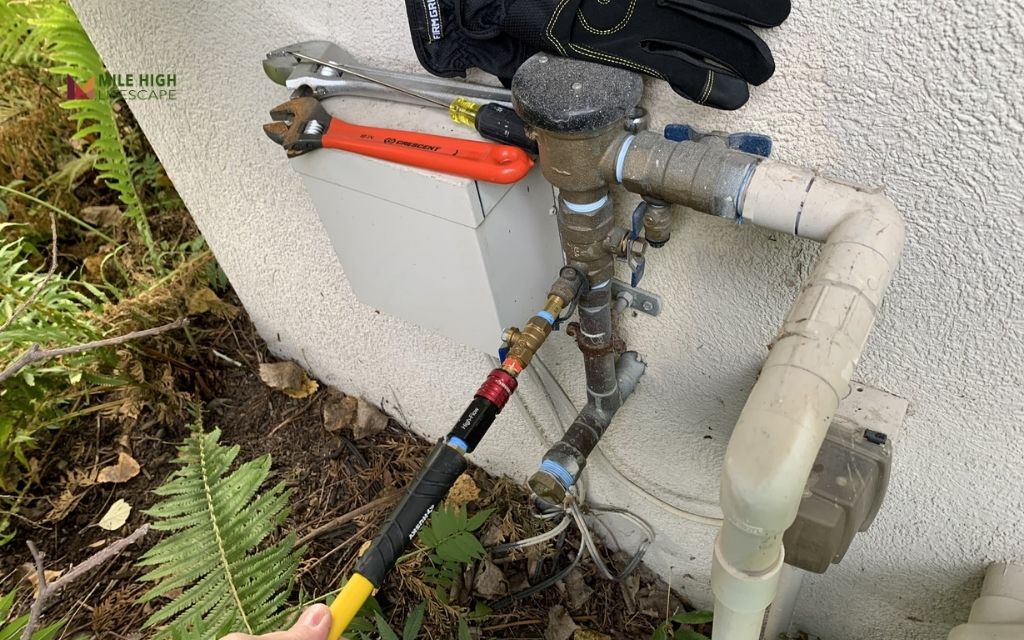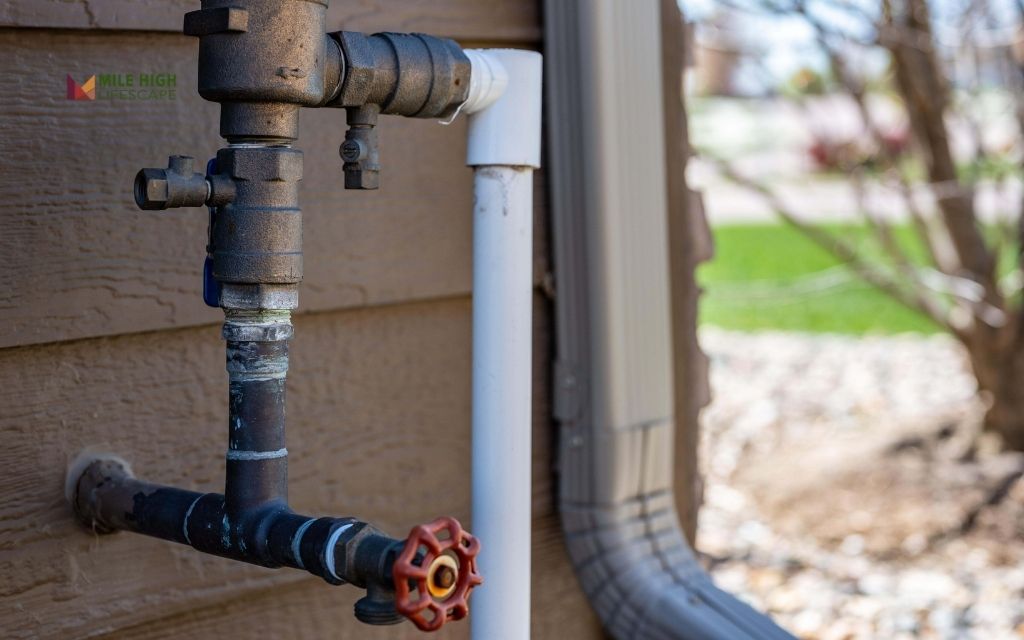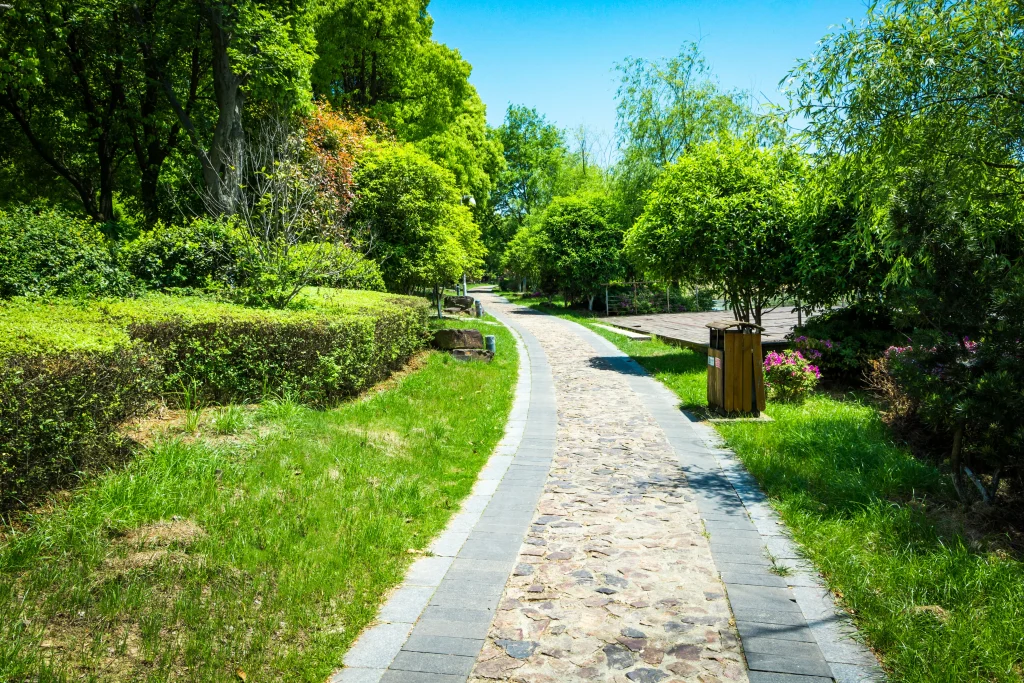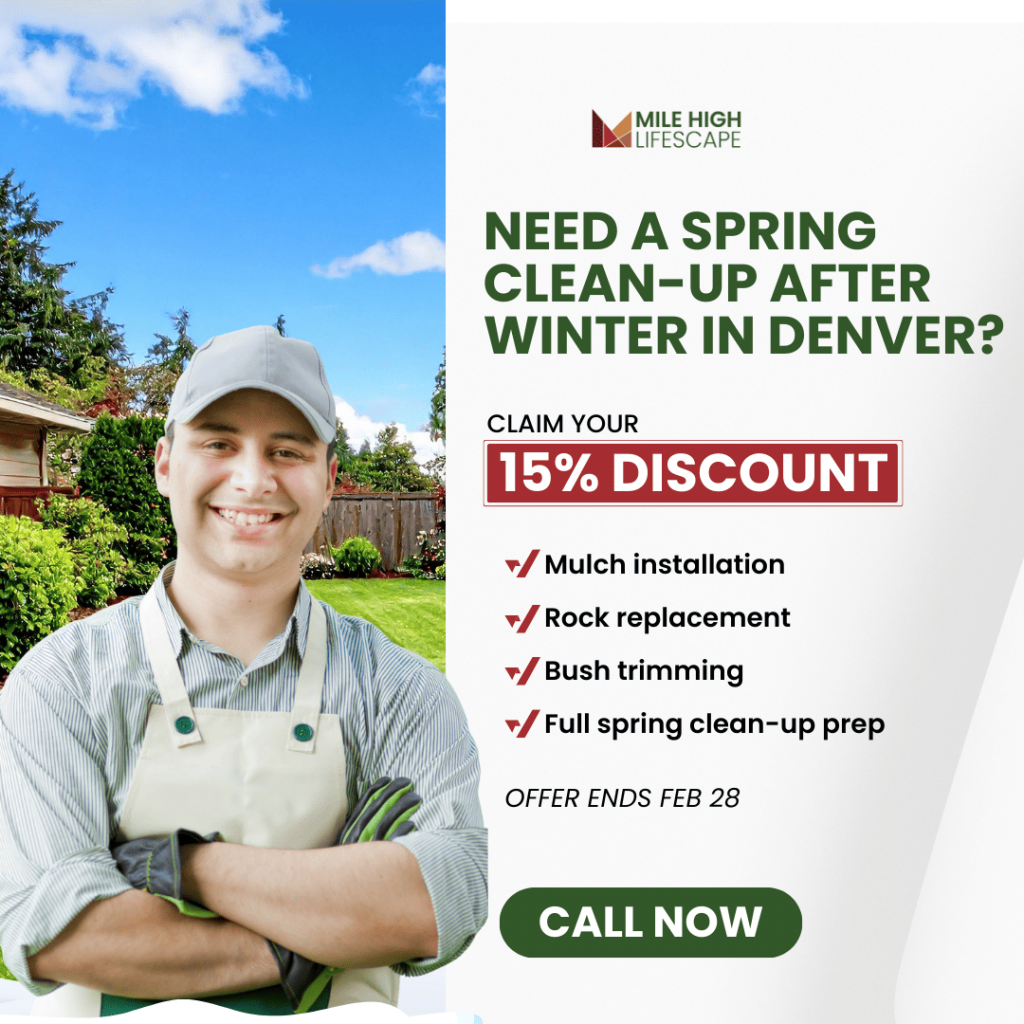Winterizing a sprinkler system means preparing it for cold weather by draining water, blowing out pipes, and shutting off water supply. This prevents freeze damage and ensures smooth spring operation.
Denver’s climate creates unique challenges with dramatic temperature swings from October through April. These freeze-thaw cycles can destroy unprotected sprinkler systems, causing repair costs of $1,000-3,000. Keep reading to understand how much does winterize sprinkler system cost.
how much does winterize sprinkler system cost?
| Service Type | Cost Range | Average Cost |
| Professional Service | $75 – $150 | $100 – $120 |
| DIY Method | $60 – $100 | $80 |
| Large/Complex Systems | $200 – $300 | $250 |
Professional winterization includes system drainage, compressed air blowout, valve shutoffs, and basic inspection.
DIY costs cover air compressor rental ($40-60/day), blowout attachments ($15-25), and basic supplies.
Geographic pricing variations:
- Mountain communities (Evergreen, Conifer): 20-30% higher
- Urban Denver areas: Most competitive rates
- Remote properties: Additional travel charges may apply
Professional services include insurance coverage and expertise that prevents costly mistakes. DIY attempts gone wrong can result in incomplete drainage and expensive damage repairs.

Why winterizing your sprinkler system is essential in Denver
Denver’s unique climate creates perfect conditions for sprinkler system destruction. At 5,280 feet elevation, the city experiences dramatic temperature swings with freezing beginning as early as October and lasting through April. These freeze-thaw cycles cause water in irrigation lines to freeze and expand, creating tremendous pressure that cracks pipes and fittings.
The consequences are predictable and expensive:
- Cracked pipes requiring excavation and replacement
- Broken sprinkler heads needing immediate replacement
- Damaged valves causing spring flooding
- Destroyed backflow preventers costing $300-800 to replace
Most insurance policies don’t cover freeze damage deemed preventable, leaving homeowners fully responsible for repair bills that often exceed $1,000-3,000.
Should you choose DIY or professional sprinkler winterization?
The decision between DIY and professional winterization depends on your technical skills, available time, and risk tolerance. DIY winterization can save money but requires careful attention to detail and proper equipment to avoid costly mistakes.
DIY winterization process
Successful DIY winterization begins with system shutdown and water supply disconnection. Locate your main sprinkler shut-off valve, typically found near the water meter or where the irrigation line connects to your home’s water supply. Turn this valve completely off and consider the location of your backflow preventer, which may require additional drainage steps.
Critical step:
Use compressed air (80-100 PSI for PVC systems, 50-80 PSI for polyethylene pipes) to blow water from all lines until only air emerges from sprinkler heads.
Essential DIY tools:
- Air compressor with sufficient CFM rating
- Proper fitting attachments for your system
- Basic hand tools for valve operation
- Safety equipment including eye protection
DIY risks:
- Incomplete water removal
- Equipment damage from improper pressure
- Personal injury potential
- Possible warranty voidance
Professional winterization services
Professional services offer comprehensive winterization beyond basic water removal. Experienced technicians understand Denver’s climate challenges and use commercial-grade equipment for thorough protection.
| What’s Included | Benefits |
| Complete system inspection | Identifies problems before expensive repairs |
| Proper water removal | Commercial-grade equipment ensures thoroughness |
| Valve adjustments & lubrication | Extends component life |
| Insurance coverage | Protects against service-related damage |
| Documentation of issues | Helps plan future maintenance |
Why choose professional service:
- Guaranteed thorough winterization
- Insurance protection against damage
- Expertise in Denver’s specific climate
- Emergency availability during weather changes
- Often includes spring startup packages
What are the factors that could affect winterization costs?
Weather-related factors
- Early season freezes (September-October) create emergency situations
- Premium rates increase costs by 50-100% for last-minute service
- Extreme weather conditions require specialized equipment and longer service time
System complexity
- Multi-zone systems with numerous sprinkler heads demand comprehensive service
- Commercial installations feature professional-grade components requiring expertise
- Drip irrigation components and varying pipe materials need specialized approaches
- Multiple backflow preventers and booster pumps increase service complexity
Timing considerations
- Early fall scheduling (September-October) offers competitive pricing
- Late season requests (November) face limited availability and higher costs
- Emergency winterization during freezing weather commands premium rates
Property characteristics
- Difficult access due to steep slopes or narrow gates increases labor time
- Remote locations may include travel charges and limited provider options
- Urban properties with standard access typically receive competitive pricing
Geographic location
- Mountain communities (Evergreen, Conifer, Nederland) pay 20-30% higher rates
- Earlier freeze dates at higher elevations require specialized techniques
- Suburban Denver areas enjoy most competitive pricing due to provider competition

How can you minimize winterization costs?
Proactive maintenance and strategic improvements significantly reduce long-term winterization costs while improving system performance.
Regular maintenance strategy
Monthly growing season inspections prevent complications during winterization. Address broken sprinkler heads, clogged nozzles, and valve problems during optimal weather when repairs cost less.
Smart system upgrades
| Upgrade Type | Long-term Benefit | Cost Impact |
| Self-draining sprinkler heads | Eliminate standing water | Reduce winterization complexity |
| Frost-resistant components | Better freeze protection | Lower maintenance costs |
| Smart controllers | Optimize watering patterns | Improved efficiency |
| Insulated valve boxes | Protect critical components | Prevent temperature damage |
Pre-winter professional inspection
Investment: $50-75
Potential savings: $500-3,000 in freeze damage prevention
What’s included:
- Identify worn components before failure
- Spot inefficient sprinkler patterns
- Recommend performance improvements
- Plan necessary repairs during off-season
Pro tip: Many Denver companies bundle inspection with winterization services for 10-15% combined savings.
Conclusion
Proper sprinkler winterization protects Denver homeowners from costly freeze damage that often exceeds $1,000-3,000. With professional services costing just $75-150, the investment provides significant value compared to devastating repair bills.
Key takeaways:
- Professional winterization costs $100-120 for most Denver homes
- DIY saves money ($60-100) but requires proper equipment and expertise
- Early scheduling (September-October) ensures better pricing and availability
- Mountain areas pay 20-30% more due to earlier freeze dates
Contact Mile High Lifescape for quotes today!
Frequently asked questions (FAQs)
How much does it cost to winterize a sprinkler system in Denver?
Professional winterization services in Denver typically cost between $75-150 for residential properties, with most homeowners paying around $100-120. DIY winterization costs $60-100 for equipment rental and supplies. Larger or more complex systems may cost $200-300 for professional service.
Can I winterize my sprinkler system myself?
Yes, DIY winterization is possible with proper equipment and knowledge. You’ll need an air compressor (80-100 PSI), blowout attachments, and basic tools. However, mistakes can cause expensive damage, so consider your technical skills and risk tolerance before attempting DIY winterization.
How do I know when to hire a professional for sprinkler winterization?
Hire a professional if you lack experience with compressed air systems, have a complex multi-zone system, want insurance protection against service damage, or prefer guaranteed thorough winterization. Professional service is also recommended for valuable or warranty-protected irrigation systems.
Can I winterize my own sprinkler system?
Homeowners can winterize their own systems with proper preparation and equipment. Success requires understanding your specific system layout, having adequate compressed air equipment, and following proper safety procedures. However, incomplete winterization can cause expensive freeze damage, making professional service a safer choice for many homeowners.
What happens if you don’t winterize sprinklers?
Failure to winterize Denver sprinkler systems typically results in cracked pipes, broken sprinkler heads, damaged valves, and destroyed backflow preventers when water freezes and expands. Repair costs often range from $500-3000 or more, far exceeding winterization service costs. Additionally, spring flooding from broken pipes can damage landscaping and property foundations.

